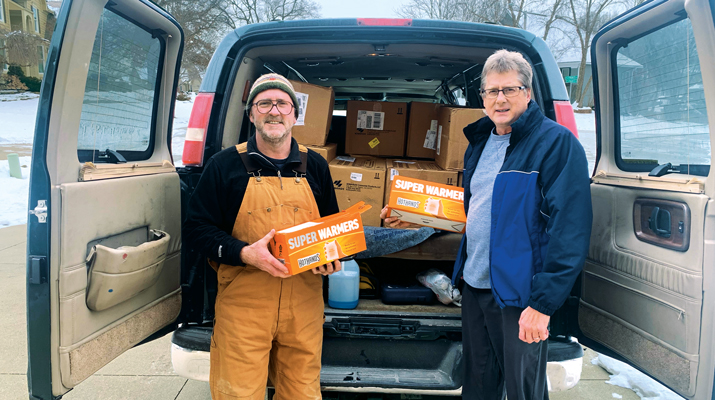Your risk of criminal liability
The phrase “corporate criminals” evokes images of the high-profile financial meltdowns at Enron, Worldcom and Tyco, as well as the subsequent convictions of those corporations’ top executives. Criminal liability and jail time are not just reserved for jet-setting executives at Fortune 500 companies, however. Managers in the oil, gas and propane industries face the potential for civil and criminal sanctions from a wide variety of state and federal statutes. Given the often-complex web of laws governing these industries, well-meaning executives can find their company, or themselves, subject to criminal prosecution.
That was the fate of Frank Hopf. Hopf was the former manager for Olympic Pipe Line Co. at the time of a 1999 pipeline rupture that spilled about 236,000 gallons of gasoline into two creeks in Bellingham, Wash. When the gasoline ignited, it created a fireball that killed two 10-year-old children playing on the riverbank. Gas fumes overcame a nearby fisherman, causing him to drown. The subsequent investigation uncovered numerous statutory violations.
Hopf pled guilty and was sentenced to six months in prison, 200 hours of community service and three years of probation for willfully failing to train employees as required by the Hazardous Liquid Pipeline Safety Act (HLPSA). Various individual and corporate defendants ultimately pled guilty or no contest to multiple criminal offenses, including violations of the HLPSA, the Clean Water Act and the Rivers and Harbors Act. Olympic and its managing corporation eventually paid $112 million in criminal and civil penalties and for safety improvements.
Like many in his situation, Hopf wasn’t “the bad guy.” Instead, he was at the helm of an operation with a lax safety culture.
As Hopf’s case illustrates, an accident investigation can quickly become a criminal prosecution of a corporation and its management. Each of the following laws can carry criminal penalties for energy companies if not properly heeded:
OSHA: Created by the Occupational Safety and Health Act of 1970, the Occupational Safety and Health Administration (OSHA) is the federal government’s primary watchdog for workplace health and safety matters. OSHA establishes workplace safety standards, conducts outreach and training programs for employers and enforces these standards through investigations and fines.
The law that created OSHA authorizes criminal penalties, including officer and supervisor jail time, in three different circumstances: 1.) any willful violation of an OSHA standard that causes the death of one or more employees; 2.) making a false statement or certification in any record, application or report required by OSHA; and 3.) giving any person advance notice of an OSHA inspection. The first two of these categories have been regularly prosecuted.
DOT: The Department of Transportation (DOT) also plays a significant role in the federal regulation of oil and propane companies. Specifically, DOT sets and enforces the hours-of-service regulations, which regulate the maximum hours that tractor trailer operators can drive without going off-duty. In addition, DOT’s Office of Pipeline Safety (OPS) oversees the 2.3 million miles of natural gas and hazardous liquid pipelines in the United States. Its investigations can lead to criminal prosecutions carrying significant fines and up to five years in prison per offense.
Suburban Paraco Corp. found itself facing criminal prosecution related to DOT hours-of-service violations following the 1994 crash of one of its tractor trailers into an interstate overpass column in White Plains, N.Y. The tank, carrying 9,200 gallons of propane, ruptured and hurtled the distance of a football field before igniting a nearby house. Twenty-three people were injured in the explosion, and the driver of the tractor trailer, who had fallen asleep at the wheel, was killed.
The incident transformed into a federal prosecution when investigators discovered the company’s drivers had allegedly kept falsified time logs, thus skirting DOT rest requirements. In fact, the driver killed in White Plains had slept less than three hours out of the previous 65. Though there was no indication that Suburban Paraco management knew about the violations, they were held liable for the forged records kept under their watch, and the company paid a $1 million criminal fine.
State fire and building codes: Compliance with state fire, building and gas codes is no longer a mere regulatory formality. Propane and natural gas appliance installers need to be acutely aware that a fire, explosion or carbon monoxide incident can now lead to criminal prosecutions and penalties, and not just the friendly reminder from the building inspector that used to be the rule. All energy suppliers, installers and building owners should realize that when fatalities occur in a fire or explosion, such “harmless” or “routine” violations of fire and building codes can quickly become the prosecution’s legal ammunition to put owners, managers or officers in jail.
Sarbanes-Oxley: The wide-ranging provisions of the 2003 Sarbanes-Oxley legislation have serious implications for companies in all sectors of the economy. The act created stricter reporting and executive certification requirements for publicly-traded companies. Specifically, Section 802 of Sarbanes-Oxley authorizes imprisonment of up to 20 years for anyone who alters, destroys or makes a false entry in any record or document in order to influence or obstruct an investigation of any federal agency. Further, Section 1502 of Sarbanes-Oxley amended the existing federal obstruction of justice statute to allow prosecution of individuals who shred documents in anticipation of a federal investigation. Previously, this statute only allowed prosecution of conspiracies to destroy evidence before an investigation began, thus not covering the “sole shredder.” This provision also carries a maximum term of imprisonment of 20 years.
Given the numerous federal agencies with the power to investigate oil, gas and propane companies, these provisions cannot be taken lightly. Were the Suburban Paraco case to occur today, federal prosecutors could conceivably attempt to prosecute company drivers under the new Sarbanes-Oxley provision prohibiting knowingly altering records in contemplation of a federal investigation. Similarly, if individuals in a drivers’ chain of authority knew of such falsifications and attempted to conceal them, they too could face serious jail time under the enhanced Sarbanes-Oxley obstruction of justice provisions.
Be smart and don’t take these laws lightly: Most executives and managers in the oil, gas and propane industries are hard-working people, trying to make an honest living in an increasingly complex industry. The web of state and federal regulatory schemes that govern the operations of energy companies carry criminal penalties for serious violations. What might seem like minor or routine infractions can become extremely serious if your product or operations lead to the death of an employee or bystander. The best way to avoid these penalties is to work with counsel to understand as fully as possible your obligations under these laws, and take steps to avoid violations before they occur. Vigilance now can help avoid an unwelcome surprise later, when overlooked violations become the key to your prosecution.
Frank W. Beckstein III is an officer of Nelson, Kinder, Mosseau & Saturley, P.C. in Boston, chairman of the firm’s Energy & Utility Group, and concentrates his practice in the defense of catastrophic fire and explosion losses. Mr. Beckstein can be reached at 617-778-7505 or via e-mail at
fbeckstein@nkms.com.
Stephen D. Coppolo is an attorney in the firm’s Manchester, N.H., office. Mr. Coppolo is a graduate of William and Mary Law School and a member in the firm’s Employment Practice Group and the Medical Services Group. He can be reached at 603-606-5028 or via e-mail at
scoppolo@nkms.com.
















